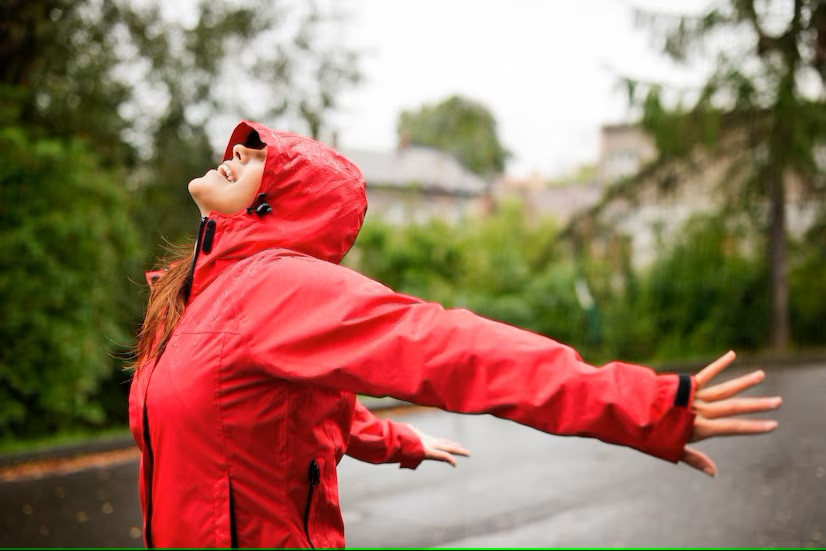Running is a simple form of exercise that provides many benefits to the body. Running not only strengthens muscles and bones but also improves cardiovascular health and helps manage weight.
Running can be done anywhere, such as around the house, in the park, or urban forest. When done regularly, running also helps boost self-confidence, and improve quality of life, age and mental health.
Is it safe to run in the rain?
There are occasions when running in the rain is necessary due to the abrupt shift in the weather. As long as it's not a severe deluge with lots of lightning, running in the rain is generally safe.
Running in the pouring rain is very safe and can occasionally even be calming and healing. But since rain is usually accompanied by cold weather, you should be aware of your body temperature when you run. One may be more vulnerable to viral infection if they have a low body temperature.
Risk of running in the rain
Although it's said that running in the rain is safe as long as it's still light and not too heavy, you need to be careful as some areas of the road may become more slippery when waterlogged. You are also more likely to slip on slippery roads and suffer a fall or sprained foot.
Motorized vehicle drivers typically have less visibility on the road in the rain, which raises the possibility of crashes and accidents.
Read more: Tips On Maintaining Health In The Rainy Season
Tips when running in the rain
Weather variations are the biggest threat to outdoor trail or off-road running. It might cloud over and start to rain while you're running.
Here are some tips to help you stay safe when running in the rain:
Avoid running in the heavy rain
Checking the weather forecast is important before starting a run, and it's best to avoid running in heavy rain or storms. Heavy rainfall can lead to flooding, posing a significant danger, especially if you're running in areas prone to floods or landslides.
Heavy rain is usually accompanied by a drop in ambient temperature and strong wind gusts. It is feared that you could experience a significant drop in body temperature and make you susceptible to illness.
Avoid running in the thunderstorms
Lightning is a very dangerous natural phenomenon that can result in fatalities or major injuries. When lightning strikes, everything or everyone that becomes a conduction channel may experience an extremely strong electrical charge flowing through them. You might become a target for lightning strikes if you are sprinting outside when it's lightning.
Read more: Why Does Your Rainy Season Make It Easier To Get Sick?
Wear safe and comfortable shoes and clothes
It's important to choose shoes that are safe and comfortable when running in the rain. Make sure your shoes have soles that are slip-resistant or have a good grip pattern. Wet surfaces during rain can make roads slippery, and good soles can help reduce the risk of slipping.
Choose shoes and jackets with waterproof materials that come with a layer of water protection to help keep your feet and body dry in rainy conditions.
Last but not least, familiarize yourself with the area where you are running. Avoid dangerous areas with the potential for landslides or flooding.
If you need medical advice or consultation, you can either visit a doctor or make use of the consultation features that are available in the Ai Care application by downloading the Ai Care application from the App Store or Play Store.
Looking for more tips and tricks for health, first aid, and other home treatments? Click here!
- dr. Yuliana Inosensia
Jane Chertoff (2020). Tips for Running in the Rain. Available from: https://www.healthline.com/health/running-in-the-rain
Better Health Channel. Home Keeping active
Running and jogging - health benefits. Available from: https://www.betterhealth.vic.gov.au/health/healthyliving/running-and-jogging-health-benefits#about-running-and-jogging
Nicole Vulcan (2019). Can Running in the Rain Make You Sick?. Available from: https://www.livestrong.com/article/496499-can-running-in-the-rain-make-you-sick/
Mayo Clinic (2022). Hypothermia. Available from: https://www.mayoclinic.org/diseases-conditions/hypothermia/symptoms-causes/syc-20352682
Texas Department of Insurance (2023). Thunderstorms: How to protect yourself from lightning. Available from: https://www.tdi.texas.gov/tips/lightning.html












